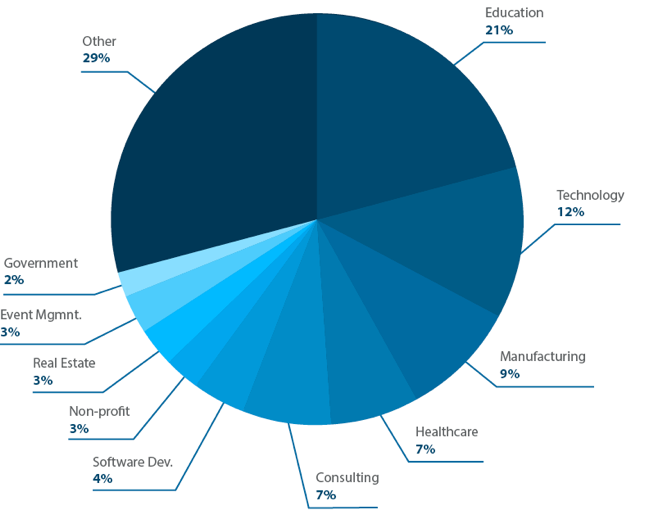How are Learning Management Systems Used in Healthcare?
Online-only learners are projected to comprise about 25% of all students by 2020, and we have learning management systems to thank for that.
A Learning management system (LMS) is a software application for the administration, documentation, tracking, reporting, and delivery of educational courses or training programs.
First introduced in the 1990s, learning management systems emerged with the concept of e-Learning. Through an LMS, instructors can deliver learning material, administer tests, allocate assignments, track progress, and keep a digital record of the student’s progress.
Because of learning management systems, many obstacles to education are reduced or eliminated altogether. Geographical, monetary, and physical barriers are all alleviated through the direct delivery of content to learners. Also, customizable features allow for individual assessment and tracking, giving the learner the most effective path to their personalized education.
Learning Management Systems and the Healthcare Industry
It is predicted that the LMS market will grow from $5.22 billion to $15.72 billion by 2021. This growth is natural because of their adoption within industries beyond education. While the education industry is understandably the top user of LMS, others are quickly following suit in 2018. After all, education is universal! The healthcare industry is among those that are effectively using LMS software, along with technology, manufacturing, and consulting.

In healthcare, there are many opportunities for the use of learning management systems for both patients and care providers. For providers, ongoing training is critical, and team members are consistently required to maintain educational best practices in order to provide the best service possible. Additionally, patients are required to demonstrate their understanding of care needs before they can be discharged from the hospital.
Here are four specific examples of how an LMS can be used in the healthcare industry:
Discharge process reformation
State-mandated pre-discharge patient education can be delivered via LMS for optimal cognition. Because it is fully automated and highly personalized, inpatients can review their content at the own pace, indicating when they have completed a section of content. This allows nurses to focus their expert training on direct clinical patient care, scaling healthcare delivery to a wider patient base.
Learn more about this type of LMS in action »
Patient education and treatment adherence
A Learning management system can be the patient’s go-to destination through their healthcare journey. They can provide credible educational content that is personalized and sequentially structured into sections and topics. This promotes independent patient education, engagement, and treatment adherence.
See this type of LMS in action »
Cultural Sensitivity Courses
Language and culture sensitive learning is a great use of LMS in healthcare. Cultural sensitivity courses deployed through an LMS can offer lessons and protocols for treating patients from a different part of the world, who may not carry the same customs as the healthcare worker.
Preventive care courses
eLearning is becoming quite common in hospitals and clinics that offer continuing credit-based courses for medical professionals. Prevention is the best cure, and the disbursement of this information can greatly impact the prevention and treatment of common medical conditions. Learning management systems can offer education on a number of preventative healthcare topics, including:
- Diabetes
- Geriatrics
- Obesity
- Cardiology
- Pregnancy
- Palliative care
Learning management systems, when deployed efficiently, can effectively change the barriers to education in the healthcare industry. To discover more about learning management systems for healthcare and how they can be deployed to help your organization, contact us by clicking the button below.







Find Us Online